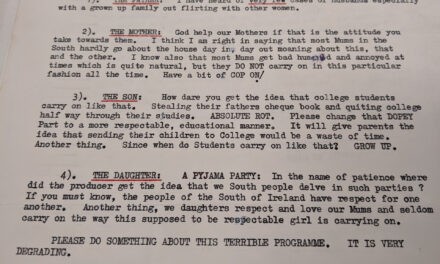Around the world, sports journalism is dominated by men. In 2018, Sky Sports in Britain recognized that: ‘At recent press conferences for the leading football clubs in the Premier League, Championship and Scottish Premiership we counted 310 reporters covering 25 clubs. Nearly 300 were men; fewer than 10 per cent were women.’ At a press conference prior to a 2023 international cricket match between England and Australia, the reporters included just one woman.[1]
In 2021, 150 French women journalists published an open letter denouncing the low status of female sports and reporters: ‘les chiffres prouvent que les hommes embauchent des hommes, qui parlent des hommes’ [the data show men hire other men, who in turn focus on men].
Some male athletes deliberately expose their genitalia to female journalists, who generally receive appalling comments on so-called social media, as explained in #More than Mean.
In 2021, gringas were 16.7% of US sports editors, 17.8% of columnists, 14.4% of reporters, and 24.7% of copyeditors. The following year, 15% of sports journalists were women. In the UK, their salaries are low by contrast with men. The obstacles are well-known: sexism, self-interest, misogyny, stupidity, and parthenogenesis. Male reporters oppose changes to this imbalance.
I’m concerned here with the Mexican context, where obstacles to women’s participation as sports reporters are also manifold, manifest, and cruel. But there is a huge international TV star from here.
This is the notable Marion Reimers. Arguably Mexico and Latin America’s most important TV sports reporter, she is an Emmy nominee and the first Mexicana to be principal commentator for a men’s football Champions League Final.

Marion Reimers
But like many women in the public eye, she receives astonishingly unpleasant and frightening threats against herself and her loved ones, reaching a point of crisis in 2024.
Reimers gained a judicial order guaranteeing Federal protection last year following fifteen years of on-line violence, the dominant form being hundreds of threats after every broadcast, many automatically generated by granjas de bots [bot farms]. As she explained to the UN, much of this harassment has been organized and paid for by shadowy entities, leading to self-censorship and hardship.
Proudly out as queer, Reimers declines to talk down to audiences in a classist manner, promotes opportunities for women sports reporters via her NGO Versus, denounces the greed animating sporting spectacle, and ironizes the sexist ravings of a former Manchester United footballer.
She also has a profound political-economic environmental critique: ‘La gentrificación del fútbol, los domos, a llevar a eso: el futbol va a estar lejos del público, adentro de un domo, jugándose como en un videojuego y afuera el planeta se va a estar quemando’ [The gentrification of football, exemplified by its new quasi-cathedrals, will lead to football played far from the public, inside a dome, like a video game, while outside the planet burns].
It’s difficult to imagine the asinine shock-jocks of the corporate US or UK media speaking in such a way, or many women refusing, as she does, the everyday sexualization of sports reporting.
Toby Miller is Distinguished Professor of Media & Cultural Studies at the Instituto Tecnológico de Monterrey. A Past President of the Cultural Studies Association (US), his most recent books are Why Journalism? A Polemic (2024), A COVID Charter, a Better World (2021), Violence (2021), and The Persistence of Violence: Colombian Popular Culture (2020).
Footnotes
[1] Dean Wilson, BBC Radio, June 28, 2023.





